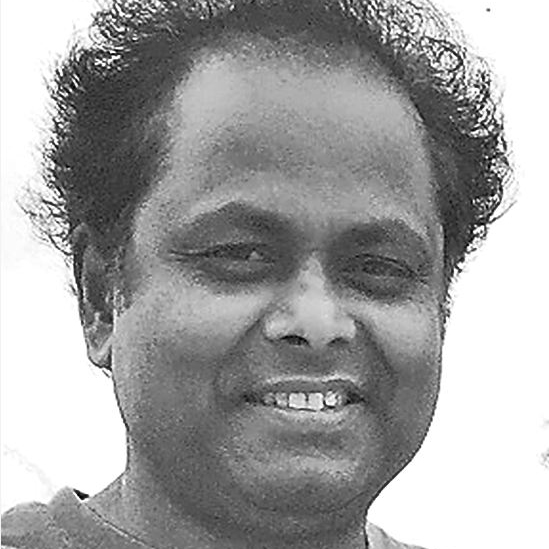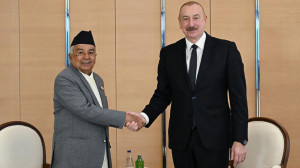Columns
Politics and institution building
Political tactics and short-term gains trump institution-building for frontline politicians.
Pramod Mishra
Nepal is a laboratory for many things, from environment and culture to geopolitics and democracy. It’s also an experiment in how a country that remained independent and isolated from direct colonial rule can stumble through the fog in institution building. The absence of direct British colonialism gave Nepal no advantage whatsoever other than its United Nations sovereignty. In all matters, it remained a poor imitation of India.
The classic oriental despot Ranas gave way to Cold War despots in the father-son duo, Mahendra and Birendra, whose farcical imitation was Gyanendra. Nepal’s Brahmin prime ministers since 1990 couldn’t be exactly like their oriental despot sovereigns, but they were no better. No prime minister, not even Baburam Bhattarai—individually a visionary but structurally weak—thought of building institutions, such as autonomous universities and libraries.
All their energies went into building only their personal clout, their factions within their parties and their parties, but seldom a system of structurally strong institutions. To be sure, they somehow slapped together a flawed constitution, but nobody invested any energy in really empowering the common people by building strong institutions from the federal to local levels. Even the local government they envisioned was to add another layer of administration rather than empowering common people through knowledge and information. As a result, the local Ward Chief has now become the new bureaucrat with all the inherent flaws.
Common Nepalis, on the other hand, are a hard-working and enterprising lot. They, men and women, are risk-takers. They venture abroad for economic opportunities. Even before globalisation opened doors for them to leave for the West and the Tiger economies of South East Asia or petro-economies of the Middle East to settle permanently or as migrant workers, they had taken risks to join the British Army—these raw, barely literate villagers—to settle all over the North-East of India and even in Burma. And now, they are everywhere. And everywhere they are known as hard-working, honest and sincere people.
But those who have stayed in Nepal, particularly those who by virtue of structural dividends get hold of state power through politics or bureaucracy, have done much sloganeering about Nepali nationalism but ultimately sought to build only their own personal wealth and their party cadres short-term gains. They have had little to no interest in empowering the common people. The consequences have been disastrous.
Only one example will suffice. Look at the number of migrant workers dying in Malaysia and the Middle East. We have seen a steady stream of body bags returning home ever since the government opened teh doors for migrants to go and work in these labour destinations. Why? You would think that these migrant workers had gone into some battlefield or war zone as combatants rather than menial workers. On the other hand, those who join the British or Indian armies die only when there is war. Why are migrant workers dying in such numbers? Can’t the government form a commission to investigate the reasons? Can’t it find solutions after the investigation? Especially when the country’s economy runs on remittance these migrant workers sent back to the country?
The situation of Nepali workers dying in hordes overseas is just one example of a lack of leadership at the political level. The system is built in a way that only mediocre but clever people, like the present prime minister, get to the top. These people have no sense of posterity. By the time they reach the top through cut-throat party ranks, they become jaded, callous and assimilated into the corrupt machinery of the system.
Lack of vision combined with this jadedness renders these men—and these have only been men—not only incompetent but damaging to the system. Rather than making steady improvements in institution-building and empowering people structurally, they engage in the old feudal ways of building a clientele. The present prime minister, KP Oli, is the worst example of that, as he has demonstrated ever since he became the prime minister. But one can’t expect anything better from the present frontline leaders. They are all birds of the same feather.
Otherwise, why wouldn’t they join hands to oust Mr Oli, the man who nearly destroyed the constitution? Political tactics and short-term political gain trumps institution-building for these frontline politicians. What is the solution?
The citizens’ movement that has come forth since past December is one solution. It has discursively advanced the vision of an inclusive, full democracy. And it has vowed to keep the movement active and become a monitoring force for the country’s politics. But a worldwide citizens’ organisation is essential to join hands with the in-country citizens’ movement in order to support and coordinate and make the politicians listen and act.
The worldwide organisation will be non-hierarchical and free. It will organise discussions and make small collections to support such issues as good governance, justice and institution building from the federal to local levels. Only parallel citizens’ organisations from the international to national and local levels can counter the structural shortcomings of the political parties and their politicians, because among the citizens will be highly educated professionals as well as concerned citizens who do not want to be tied down by the pettiness or time commitment that any permanent party or hierarchical organisation demands.
One of the important outcomes of this spread of the citizens’ movement would be to prepare the future generation of leaders, those who are now in schools and colleges, to join politics with a different mindset than is possible now. Otherwise, there is no end to this sluggish political charade that the present lot of leaders are conducting in Nepal.




 9.92°C Kathmandu
9.92°C Kathmandu















